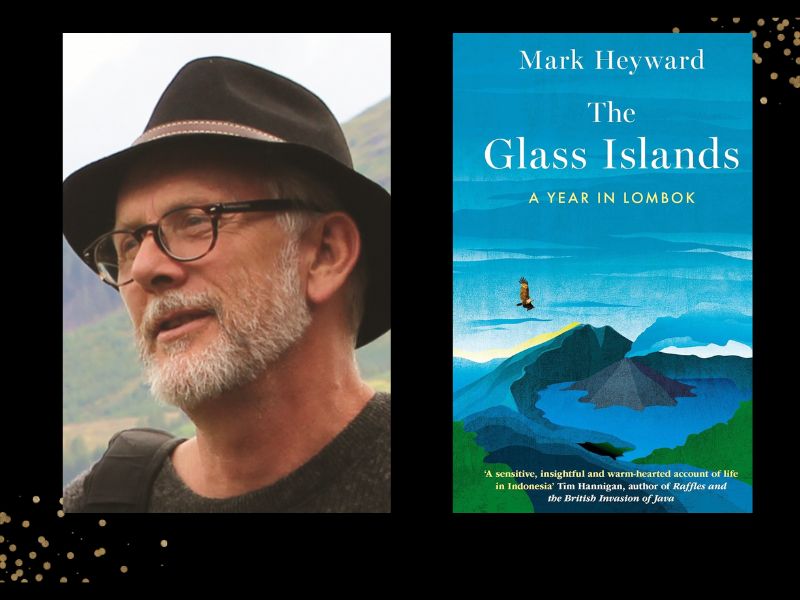Bali has been one of the world’s tourist hotspots for decades but, curiously, the neighbouring island of Lombok – similar in both land area and population size – has never loomed anywhere near as large in the world’s consciousness.
Despite being separated from Bali by just 40 kilometres of water and matching or even exceeding Bali in physical beauty, Lombok remains relatively mysterious and unfamiliar.
Mark Heyward’s The Glass Islands is the first major attempt by a Western author to pierce through the torpid tropical haze and lay Lombok bare. In doing so, Heyward also tells the story of his own life journey – one in which the son of an Anglican bishop in Hobart converts to Islam and raises a family in Lombok.
Subtitled ‘A Year in Lombok’, The Glass Islands recounts the 12 months in which Heyward and his Javanese wife built a house on The Hill, a locality near the town of Senggigi, overlooking the azure waters of the Lombok Strait.
While a story about building a house doesn’t sound particularly exciting, Heyward uses it as an effective base from which to explore Lombok and its people.
Much is learned about local life through the rituals and traditions that must be observed, from the Buka Bumi ceremony (analogous to the Western concept of ground-breaking), to dealings with local builders and contractors, to navigating the complicated maze of bureaucracy and officialdom.
From this foundation, Heyward explores the heady physicality of Lombok, with its rainforests, beaches and 3726-metre high volcano; its complicated history, which has seen it ruled by several different cultures; the local religions – mainly Islam with animistic influences, but also Buddhism, Hinduism and Christianity; and the island’s unique demographic mix of local Sasak people, Chinese, Arabs, Balinese and ‘a new breed – Western expats, with their own dreams, their own tropical fantasies’.
Heyward’s love for Lombok and Indonesia is obvious. He describes Lombok as ‘a gem of a place – a little rough around the edges, like an uncut diamond’.
But he doesn’t pretend it’s a paradise, either.
He appears particularly concerned by a rising tide of Islamic fundamentalism in Indonesia, threatening to supplant the traditionally moderate form of local Islam. He writes of its influence even within his own family, with his sister-in-law increasingly attracted to the idea of a Muslim caliphate.
Indonesia is a land of contradictions, so it’s fitting that Heyward’s relationship with Islam is also storied. While a Muslim himself, he unselfconsciously admits to enjoying the occasional beer. He doesn’t shy away from pointed observations about ‘this harsh, dry desert religion’ and its juxtapositions with Lombok’s relaxed tropical vibe.
One gets a strong sense of his deep admiration for Islam, however, particularly its capacity to nurture community and build cohesion.
One also gets a strong sense of Heyward’s satisfaction with life in Lombok and all it has given him. He writes at length of simple but meaningful pleasures: Lombok’s nature, community, the changing of the seasons, and his love for his wife and children.
As such, this is not an instantly compelling book; it appeals in a more languid and lasting way. Perhaps a bit like Lombok itself.
Read: Book review: Everyone on Mars, Larry Buttrose
The Glass Islands is a worthy addition to the growing canon of Western literature about Indonesia, joining such books as Elizabeth Pisani’s Indonesia Etc., Adrian Vickers’ Bali: A Paradise Created and Heyward’s own Crazy Little Heaven as significant works in the field.
The Glass Islands, Mark Heyward
Publisher: Monsoon Books
ISBN: 9781915310163
Format: paperback
Pages: 336pp
RRP: $29.95






